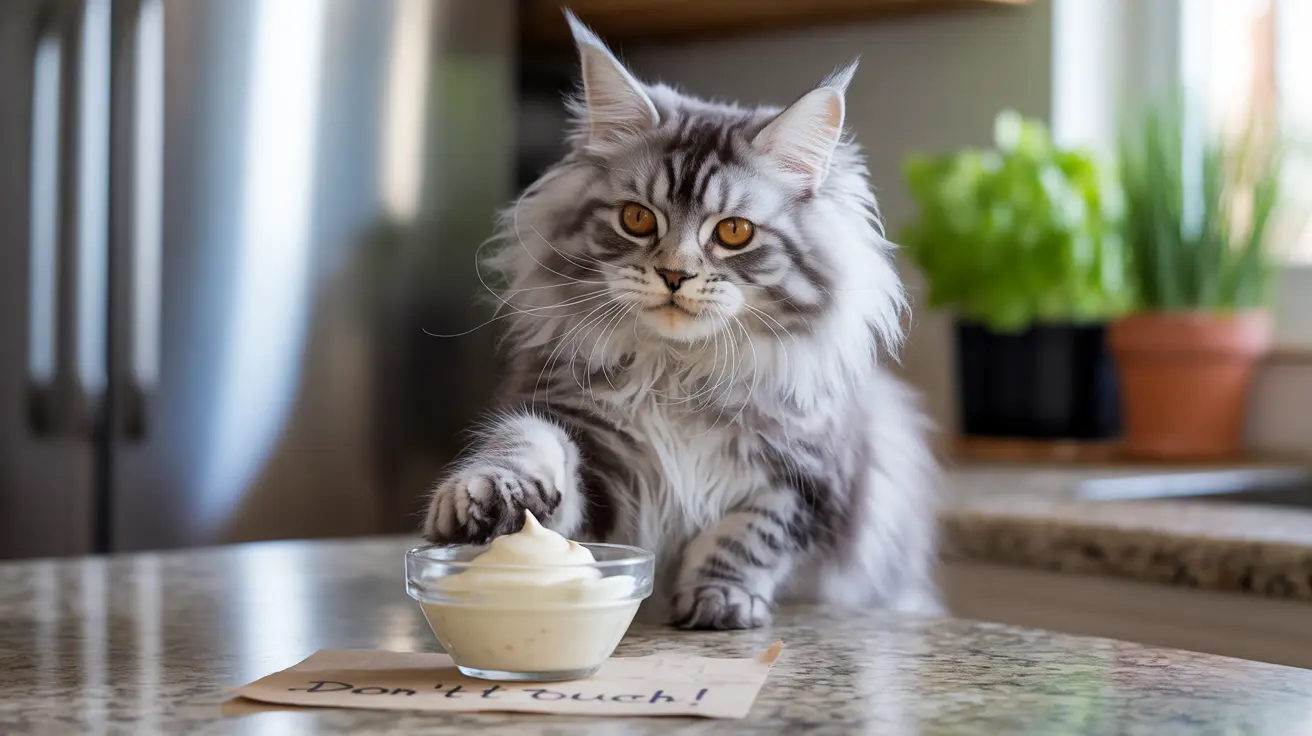If you've ever wondered whether it's safe to share a bit of mayonnaise with your feline friend, you're not alone. While cats might show interest in this creamy condiment, understanding its potential effects on their health is crucial for responsible pet ownership.
In this comprehensive guide, we'll explore the safety implications of mayonnaise for cats, its potential risks, and why veterinarians generally advise against feeding this common condiment to our feline companions.
Understanding Mayonnaise Composition and Cat Safety
Mayonnaise is primarily composed of oil, egg yolks, and acidic ingredients like vinegar or lemon juice. While eggs themselves aren't harmful to cats, the high fat content and additional ingredients in mayonnaise can pose several health concerns.
Commercial mayonnaise often contains additives, preservatives, and seasonings that could be problematic for your cat's digestive system. Some varieties might even include harmful ingredients like garlic or onion powder, which are toxic to cats.
Health Risks of Feeding Mayo to Cats
Digestive Issues
Cats have sensitive digestive systems that aren't designed to process fatty, processed foods like mayonnaise. Consuming mayo can lead to:
- Vomiting
- Diarrhea
- Stomach upset
- Pancreatitis in severe cases
Weight Management Concerns
Mayonnaise is extremely caloric, with about 680 calories per 100 grams. Considering that an average cat only needs around 250 calories per day, even small amounts of mayo can contribute significantly to weight gain and obesity.
The Myth of Mayo as a Hairball Remedy
Some pet owners believe mayonnaise can help with hairball problems due to its oily nature. However, veterinarians strongly discourage this practice. There are many safer, specially formulated products designed specifically for hairball management in cats.
Safe Alternatives to Mayonnaise
Instead of mayonnaise, consider these veterinarian-approved treats for your cat:
- Commercial cat treats formulated for feline nutrition
- Small pieces of plain, cooked chicken or turkey
- Specially designed hairball prevention treats
- Cat-specific vitamin supplements when recommended by your vet
What to Do If Your Cat Eats Mayo
If your cat accidentally consumes a small amount of mayonnaise, don't panic. Monitor them for any signs of digestive upset or unusual behavior. Contact your veterinarian if you notice:
- Persistent vomiting
- Lethargy
- Loss of appetite
- Diarrhea lasting more than 24 hours
Frequently Asked Questions
Is mayonnaise safe for cats to eat in small amounts?
While not immediately toxic, mayonnaise is not safe or recommended for cats. Even small amounts can cause digestive issues and contribute to unhealthy weight gain.
Why is mayonnaise not recommended as a regular food for cats?
Mayonnaise is high in fat and calories, contains potentially harmful additives, and offers no nutritional benefits for cats. It can lead to obesity and digestive problems.
Can eating mayonnaise cause digestive problems or obesity in cats?
Yes, mayonnaise can cause both digestive issues and contribute to obesity in cats due to its high fat and calorie content. It may also trigger pancreatitis in some cases.
Is it true that mayonnaise can help cats pass hairballs?
No, this is a myth. While some believe the oil in mayo can help with hairballs, veterinarians recommend proper hairball treatments specifically designed for cats instead.
What are healthier treat alternatives to mayonnaise for cats?
Healthier alternatives include commercial cat treats, small pieces of plain cooked meat, and veterinarian-approved supplements designed specifically for feline nutrition.
Conclusion
While mayonnaise isn't toxic to cats in very small amounts, it's best to avoid feeding it to your feline friend altogether. Focus instead on providing a balanced, species-appropriate diet and veterinarian-approved treats to maintain your cat's optimal health and wellbeing.






